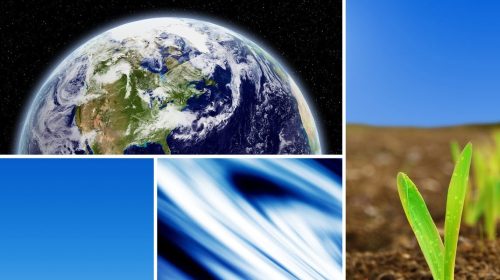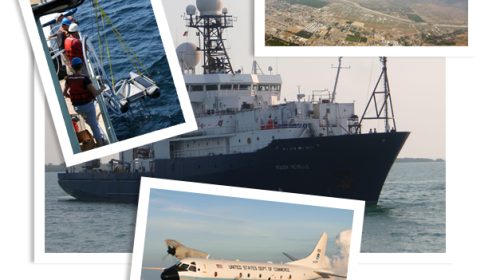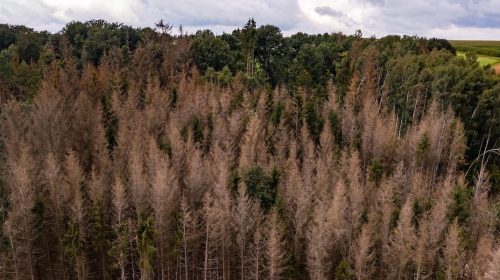Important Information and Updates
Check here for updates, announcements, and critical messages.
NOFO at a Glance
General Information
CPO’s grant programs manage a competitive process through a NOFO announcement to make awards supporting high-quality research conducted across the United States and internationally on the most urgent climate science questions. While each program area has its own focus, together they advance understanding of Earth’s climate system through interdisciplinary, integrated scientific research, and leverage the resulting knowledge, data, and systems to enhance society’s ability to plan and respond to climate variability and climate change. Toward this end, CPO also supports partnerships that build end-to-end pipelines of information (e.g., integrated information systems) flowing from scientists to decision-makers.
In FY25, AC4 solicits proposals focused on the following priorities:
- Prototypes of urban GHG and air quality monitoring to evaluate the impact of climate action plans and other mitigation actions, including streamlining and coordination of ongoing efforts
- Quantifying sources and sinks of urban trace gasses and aerosols, especially Ammonia (NH3), methane (CH4) and Secondary Organic Aerosols (SOA)
- Improved understanding of compounding effects of heat, fire and other hazards on air quality and GHG concentrations
- Data analysis and modeling of urban measurements associated with NOAA field campaigns, e.g. AEROMMA
- Understanding interactions between boundary layer processes, and trace gas and aerosol chemistry and transport
- Measurements from various observing platforms and modeling that help validate and show the utility of satellite data in urban areas
- Urban monitoring in collaboration with local communities at increased risk of health impacts due to poor air quality, especially those identified in EPA’s EJScreen tool
- Understanding urban vegetation’s role in urban air composition, including its changes with changing climate
- Urban-relevant measurements that are aligned with NOAA’s AiRMAPS field campaign
Links to Full NOFO and Grants.gov Listing
Important Dates/Deadlines
Letters of Intent:
Letters of intent (LOIs) should be submitted via Google Form by 11:59 pm Eastern Time on September 18, 2024.
Full Applications:
Full applications must be received by 11:59 pm Eastern Time, on December 9, 2024.
Applications received after this time will not be considered for funding.
Applications must be submitted via http://www.grants.gov. For applications submitted through grants.gov, the basis for determining timeliness is the receipt notice issued by www.grants.gov, which includes the date and time received.
Emailed or faxed copies of applications will not be accepted.
Applicants without Internet access:
For applicants without internet access, please contact the CPO Grants Manager Diane Brown by mail at NOAA Climate Program Office (R/CP1), SSMC3, Room 12734, 1315 East-West Highway, Silver Spring, MD 20910 to obtain an application package.
Please allow two weeks after receipt for a response. Hard copy submissions will be date and time stamped when they are received in the Climate Program Office.
Where to Submit
Application packages:
Visit the Grants.gov listing and click on Apply.
Federal Funding Opportunity Number:
Applicants without Internet access:
Send applications to:
Diane Brown
CPO Grants Manager
NOAA Climate Program Office (R/CP1), SSMC3, Room 12734
1315 East-West Highway
Silver Spring, MD 20910
Please allow two weeks after receipt for a response. Hard copy submissions will be date and time stamped when they are received in the Climate Program Office.
For Federal Investigators
Federal lead investigators who wish to apply to this Announcement of Opportunity must prepare a proposal according to the FFO guidelines and submit the proposal to the program manager directly, instead of to Grants.gov. Federal co-investigators must submit a proposal identical to the proposal lead’s but with personalized budget information.
Questions/Who to Contact
For competition specific information please contact the competition manager, Monika Kopacz (monika.kopacz@noaa.gov).
For general questions about the NOFO application process, please contact the CPO Grants Specialist Anne Li (anne.li@noaa.gov) or the CPO Grants Manager, Diane Brown, by mail (see address below) or at diane.brown@noaa.gov.
Diane Brown
CPO Grants Manager
NOAA Climate Program Office (R/CP1), SSMC3, Room 12734
1315 East-West Highway
Silver Spring, MD 20910
Please allow up to two weeks after receipt for a response.
Additional Links
Webinars/Events
A joint discussion with Q&A was held for all FY25 competitions hosted by the Climate Program Office's Earth System Science and Modeling (ESSM) Division programs. The video recording can be found by visiting the event page.
List Of Competitions
AC4 is accepting individual applications for 1 competition.
Urban Atmosphere and the Impacts of Climate and Air Quality Mitigation Strategies
Program Manager(s)
- Monika Kopacz
- monika.kopacz@noaa.gov
- Shiv Das
- shiv.das@noaa.gov
Grants Specialist
- Anne Li
In FY25, AC4 solicits proposals focused on the following priorities:
- Prototypes of urban GHG and air quality monitoring to evaluate the impact of climate action plans and other mitigation actions, including streamlining and coordination of ongoing efforts
- Quantifying sources and sinks of urban trace gasses and aerosols, especially Ammonia (NH3), methane (CH4) and Secondary Organic Aerosols (SOA)
- Improved understanding of compounding effects of heat, fire and other hazards on air quality and GHG concentrations
- Data analysis and modeling of urban measurements associated with NOAA field campaigns, e.g. AEROMMA
- Understanding interactions between boundary layer processes, and trace gas and aerosol chemistry and transport
- Measurements from various observing platforms and modeling that help validate and show the utility of satellite data in urban areas
- Urban monitoring in collaboration with local communities at increased risk of health impacts due to poor air quality, especially those identified in EPA’s EJScreen tool
- Understanding urban vegetation’s role in urban air composition, including its changes with changing climate
- Urban-relevant measurements that are aligned with NOAA’s AiRMAPS field campaign





